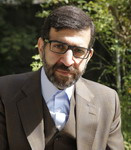The No-Fly Zone and the Future of Libya

1. Demanding an immediate ceasefire and complete end to violence, abuse, and attacks on civilians;
2. Deciding to establish a ban on all flights over Libya in order to protect civilians;
3. Permitting members of the UN to adopt all necessary measures to protect civilians, including in Benghazi, and emphasizing that this license precludes any form of foreign occupation anywhere in Libya;
4. Strictly implementing the Libyan arms embargo
5. Establishing asset freezes on 7 of Qaddafi’s relatives and his supporters
6. Establishing an asset freeze on 5 Libyan financial institutions, including the Central Bank and the Libyan National Oil Company; and
7. Requesting from the UN Secretary-General a determination of a 8-member delegation of experts to help oversee implementation of sanctions against Libya.
The decision made by the Security Council is significant due to the following reasons:
1. In implementation of the resolution that refers to the UN member states that are allowed to take "all necessary measures" to protect civilians, it authorizes the use of military forces against the Qaddafi regime. Accordingly, foreign fighter aircraft are allowed to attack Libyan tanks and other heavy military equipment. The discourse employed has a history in other resolutions of the Security Council. During the Kuwait occupation by Iraq, in Resolution 678, the Council used the same discourse;
2. Establishment of a ban on all flights over Libya is a major challenge for Western countries because by the exact implementation of this resolution, there is a possibility of the shooting down of NATO fighter aircraft and capture of the pilots. That is why since the subject was first proposed in the Council, the US declared that the implementation of the project was complex, and first it would be necessary to neutralize the Libyan air defense system.
3. Although the US was involved in the formulation and approval of the resolution, it is not clear how it is involved in the implementation of the no-fly zone over Libya. Currently, England and France have announced that they will act swiftly.
4. The resolution declaration about the opposition to foreign occupation is followed by some countries’ opposition (including Islamic and Arab ones). The explicit discourse of the resolution in this regard is due to the obtained in favor votes in the council to adopt the resolution and to assure the regional countries that the goal is not occupying Libya. That is why the U.S., Britain and France insist that military forces of Arab countries participate in the operation, or at least contribute to the costs, as it does not seem that the West wants to attack a Muslim country again.
5. Germany’s abstention clearly illustrated the gaps in the West in protesting Gaddafi regime. Germany’s official position on the abstention vote was its opposition to a war in North Africa. However, it is clear that domestic issues such as an election in Germany and the people’s protest against participating in war were the reason that it did not cooperate with U.S., UK and France.
The Libyan regime explicitly threatened to prevent the adoption of the resolution; previously claiming that if the world went crazy he would go crazy too. But Gaddafi stated that he was ready to implement ceasefire for civilians immediately after the resolution, though apparently, after the announcement, the Libyan regime heavily attacked anti-Gaddafi protestors. It seems that the purpose of Gaddafi’s acceptance of a cease-fire is to create gaps among Western countries and to not give them an excuse to perform military operations against the regime.
Now, is not clear that if Gaddafi isn’t observing the ceasefire, what the response of the West will be. The stated position of the U.S. is dethroning Gaddafi; this is something unlikely to be achieved in the short run, especially given that Gaddafi forces have taken a few major cities out of the control of protestors during the past few days. The Western delay in announcing a no-fly zone over Libya at the beginning of Gaddafi’s air strikes against opponents suggested that the regime can safely attack opponents and civilians from air and land.
Libya’s future is not predictable. Westerners now talk about withdrawal of Gaddafi forces from East Libya where the oil reserves are very rich. It seems that the West is not capable of or willing to completely overthrow the Gaddafi regime. The state of neither war nor peace in the country practically divided Libya into eastern and western sections, and affects the Muslim world. Political and economic pressures on Gaddafi’s regime should be intensified, and the international community should, in an integrated and strict manner according to international regulations and without any military campaigns, deal with the Libyan dictator in a way to force him to resign, and to ultimately let the Libyan people determine their fate without any foreign intervention.

